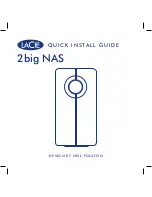
BGP Configuration Commands
627
aggregate
Syntax
aggregate
address mask
[ as-set ] [ detail-suppressed ] [ suppress-policy
route-policy-name
] [ origin-policy
route-policy-name
] [ attribute-policy
route-policy-name
]
undo aggregate
address mask
[ as-set ] [ detail-suppressed ] [ suppress-policy
route-policy-name
] [ origin-policy
route-policy-name
] [ attribute-policy
route-policy-name
]
View
BGP view
Parameter
■
address: Address of the aggregated route, in dotted decimal notation.
■
mask: Network mask of the aggregated route, in dotted decimal notation.
■
as-set: Creates a route with AS segment.
■
detail-suppressed: Only advertise the aggregated route.
■
suppress-policy route-policy-name: Suppresses the specific route selected,
some of which are not advertised.
■
origin-policy route-policy-name: Selects the originating routes used for
aggregation.
■
attribute-policy route-policy-name: Sets the attributes of the aggregated route.
Description
Using the aggregate command, you can establish an aggregated record in the BGP
routing table. Using the undo aggregate command, you can cancel the function.
By default, there is no route aggregation.
The keywords are explained as follows:
Table 4
Functions of the keywords
Example
Establish an aggregated record in the BGP routing table.
[3Com-bgp] aggregate 192.213.0.0 255.255.0.0
Keywords
Function
as-set
Used to create an aggregated route, whose AS path information
includes detailed routes. Use this keyword carefully when many AS
paths need to be aggregated, for the frequent change of routes may
lead to route vibration.
detail-suppressed
This keyword does not establish any aggregated route, but it restrains
the advertisement of all the specific routes.
If only some specific routes
are to be restrained, use the
peer filter-policy
command carefully.
suppress-policy
Create an aggregated route with this keyword, at the same time, the
advertisement of the specified route is restrained. If you want to restrain
some specific routes selectively and leaves other routes still being
advertised, use the
if-match
clause of the
route-policy
command.
origin-policy
Select only the specific routes that are in accordance with route-policy
to create an aggregated route.
attribute-policy
Set aggregated route attributes.
The same work can be done by using
peer route-policy
, etc.
Summary of Contents for Router 3031
Page 6: ......
Page 686: ...686 CHAPTER 6 ROUTING PROTOCOL...
Page 758: ...758 CHAPTER 7 MULTICAST COMMON CONFIGURATION COMMANDS...
















































